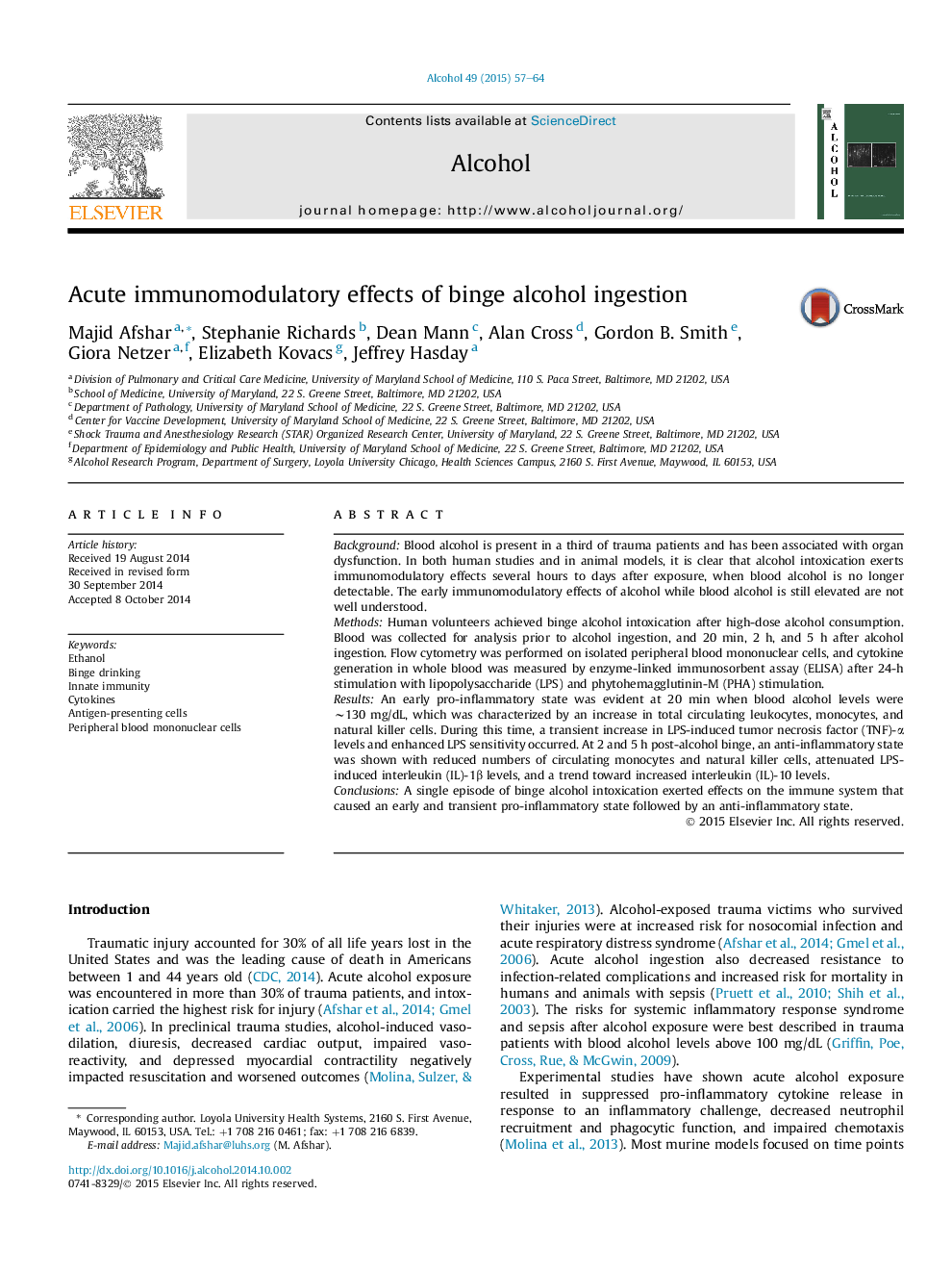| کد مقاله | کد نشریه | سال انتشار | مقاله انگلیسی | نسخه تمام متن |
|---|---|---|---|---|
| 1066921 | 948853 | 2015 | 8 صفحه PDF | دانلود رایگان |
• A single episode of binge alcohol elicits a biphasic immunologic response.
• An early pro-inflammatory state was evident 20 min post-alcohol ingestion.
• At two and 5 h post-alcohol, subjects exhibited an anti-inflammatory state.
• Circulating monocytes and LPS-induced cytokines are affected most after binge.
BackgroundBlood alcohol is present in a third of trauma patients and has been associated with organ dysfunction. In both human studies and in animal models, it is clear that alcohol intoxication exerts immunomodulatory effects several hours to days after exposure, when blood alcohol is no longer detectable. The early immunomodulatory effects of alcohol while blood alcohol is still elevated are not well understood.MethodsHuman volunteers achieved binge alcohol intoxication after high-dose alcohol consumption. Blood was collected for analysis prior to alcohol ingestion, and 20 min, 2 h, and 5 h after alcohol ingestion. Flow cytometry was performed on isolated peripheral blood mononuclear cells, and cytokine generation in whole blood was measured by enzyme-linked immunosorbent assay (ELISA) after 24-h stimulation with lipopolysaccharide (LPS) and phytohemagglutinin-M (PHA) stimulation.ResultsAn early pro-inflammatory state was evident at 20 min when blood alcohol levels were ∼130 mg/dL, which was characterized by an increase in total circulating leukocytes, monocytes, and natural killer cells. During this time, a transient increase in LPS-induced tumor necrosis factor (TNF)-α levels and enhanced LPS sensitivity occurred. At 2 and 5 h post-alcohol binge, an anti-inflammatory state was shown with reduced numbers of circulating monocytes and natural killer cells, attenuated LPS-induced interleukin (IL)-1β levels, and a trend toward increased interleukin (IL)-10 levels.ConclusionsA single episode of binge alcohol intoxication exerted effects on the immune system that caused an early and transient pro-inflammatory state followed by an anti-inflammatory state.
Journal: Alcohol - Volume 49, Issue 1, February 2015, Pages 57–64
